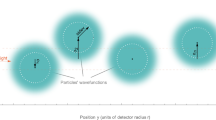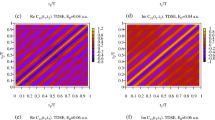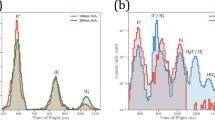Abstract
IN a paper read before a joint meeting of the American Physical Society and the American Astronomical Society, in December, I pointed out that theoretically the absorption of radiation by free electrons should render an ionised gas highly opaque. The organised vibrational energy, due to the radiation, of the free electrons is transformed by collisions into disorganised thermal energy of translation. A tentative application of the methods of the well-known free electron theory of the optical properties of metals to conditions in an ionised gas gives the following equation for the volume opacity coefficient K. The quantity K is such that in distance z centimetres through the gas the intensity of the direct beam is reduced to eKz of its initial value.
This is a preview of subscription content, access via your institution
Access options
Subscribe to this journal
Receive 51 print issues and online access
$199.00 per year
only $3.90 per issue
Buy this article
- Purchase on Springer Link
- Instant access to full article PDF
Prices may be subject to local taxes which are calculated during checkout
Similar content being viewed by others
Author information
Authors and Affiliations
Rights and permissions
About this article
Cite this article
STEWART, J. The Opacity of an Ionised Gas. Nature 111, 186–187 (1923). https://doi.org/10.1038/111186c0
Issue Date:
DOI: https://doi.org/10.1038/111186c0
Comments
By submitting a comment you agree to abide by our Terms and Community Guidelines. If you find something abusive or that does not comply with our terms or guidelines please flag it as inappropriate.



